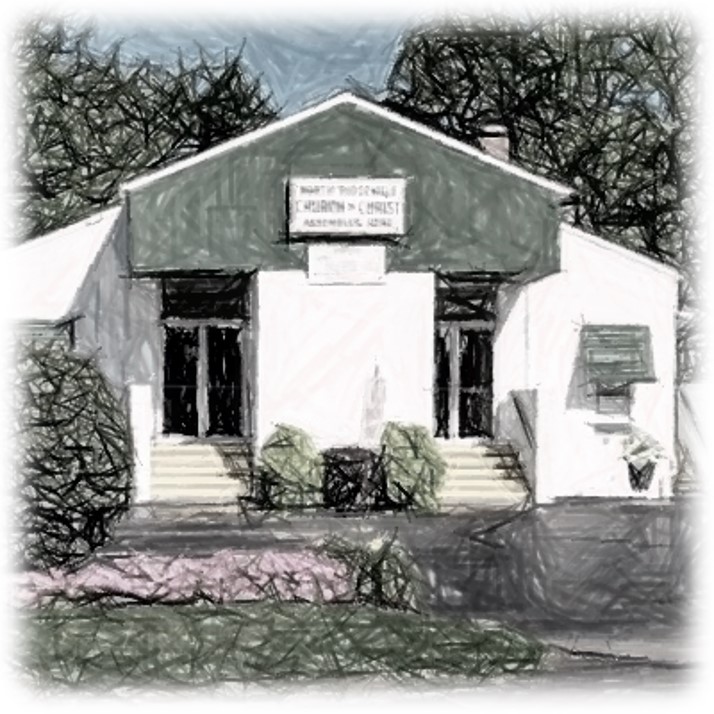"What Does Self-Righteousness Look Like?"
Steven J. Wallace
"Also He spoke this parable to some who trusted in themselves that they were righteous, and despised others"
(Lk. 18:9).
Webster defines the "self-righteous" as: "Convinced of one's own righteousness especially in contrast with the actions and beliefs of others: narrow-mindedly moralistic."
Before we see what self-righteousness looks like, let's first note what it is not.
It is not the person who lovingly yet forcefully calls men to repentance.
Although not self-righteous, Jesus came to call sinners to repentance (Matt. 9:13; Lk. 5:32). Both Jesus and John were bold in their preaching. John preached a baptism of repentance which was a message that brought the mountains down! His preaching took the crooked paths of men and set to make them straight so that all should see the salvation of God (Lk. 3:1-6). In teaching about the salvation of God, the apostles commanded sinners to repent and be baptized (Acts 2:37, 38).
It is not the person who warns others that judgment is coming.
In Luke 13:1-5 Jesus corrected a false notion held by some. They assumed that some were destroyed by Pilate or met a tragic end through unfortunate circumstances (such as a tower falling on them) because they were worse sinners than others. Jesus corrected His listeners and urged them to repent or they would also perish.
It is not the person who is capable of practicing black-and-white discernment.
Jesus understood Herod shared the traits of a fox (Lk. 13:31, 32). He was not speaking from a self-righteous point of view but correctly exposing Herod's deceitful ways. We should be able to call a spade "a spade" without becoming self-righteous.
So what does self-righteousness look like?
It looks like a person who trusts and exalts himself that he is righteous (Lk. 18:9).
His trust is not in the Son of God, in what Jesus did, and in what Jesus taught as much as it is in defending, presenting, and exalting, himself! Remember, the Lord closes this parable with the application against "everyone who exalts himself" (Lk. 18:14). The one who exalts himself is not open to criticism and naturally despises anyone who would critique him. Self-criticism is illuminated and replaced with self-praise. The Pharisee who went up to pray filled his prayer with self-praise and therefore prayed with himself (Lk. 18:11, 12).
It looks like a person who despises others (Lk. 18:9).
The praying Pharisee not only trusted in Himself, but he also despised others. His sense of superiority enhances a dim view of others. He views others with contempt to make himself feel pure. He held others down to hold himself up, "I thank You that I am not like other men." Where he will not receive any criticism, he has an abundant amount of criticism for others. Highlighting the faults and failures of others brings the self-righteous a sense of proud confidence.
It looks like a person who doesn't love his neighbor (Lk. 7:36-39).
Simon knew the woman who came and wouldn't do anything to lead or influence her to a different course of life. Like some today, he would not talk with this woman when she was near but avoided her altogether. The self-righteous do not love their fellow neighbors and are not interested in leading them to the salvation of God. They may talk about sinners needing to be "converted" but they do virtually nothing to get to know them and lead them to Christ. Why would the self-righteous want sinners to repent anyway? Their sins are used to make such a one feel better about himself.
It looks like a person who doesn't love God or man (Lk. 7:40-48).
One of the saddest facts about the self-righteous is that they are blind to their own sins and cannot love God. Simon didn't love the gift of God. He gave Jesus no courteous welcome, no water to wash His dusty feet, no kiss of greeting, and no oil for His head. He loved little because he saw himself in need of nothing or only very little. The woman loved a lot because she saw herself in need of God's mercy for a life lived in sin. Her sins, which were many could be forgiven. But the person who sees that he has little to be forgiven of will only love the forgiver little (Lk. 7:47).
It looks like one who is blind to God (Lk. 7:49, 50).
Neither Simon nor his smug guests saw Jesus for who He really was. Their question "Who is this who even forgives sins?" underscores the point. They held Jesus in scorn and believed He was a blasphemer (cf. Mk. 2:7). They did not see Jesus as Immanuel, "God is with us."
Self-righteousness is a sin. In speaking about the prodigal son and his older brother in Luke 15:11-32, we find this in the eldest son. He sees only his good deeds and holds his brother in contempt. Yet, his scorn goes beyond his brother and is directed to the father also for forgiving and reinstating the repentant prodigal as a son. He did not rejoice in that repentance but became further alienated. In essence, we see that self-righteousness alienates us from our Father in heaven as much as the sin of living an immoral life. Where the prodigal was an outward rebel, the older brother was an inward insurgent and protestor of God—hence the self-righteous.
.
